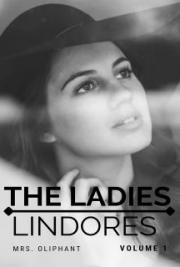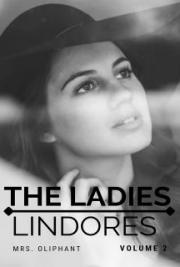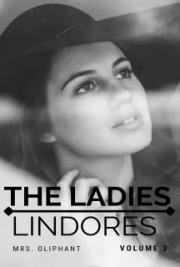CHAPTER XXXVIII.
THE HERITAGE OF BARBARA WORTH.
Barbara, walking quickly, left the little village and, crossing Dry River on the bridge that now spanned the deep gorge where the old San Felipe trail once led down into the ancient wash, climbed the slight grade to the grave that was marked by the simple headstone with its one word—"Mother."
That morning Jefferson Worth had told her of the tin box found by Texas Joe and Pat. With reverent care she had read the papers and letters and had looked long at the portraits of her parents and people. She could not at first realize that the desert had at last given up the secret that she had so longed to know. It was not real to her, the revelation was so sudden, so startling. She could not think of herself save as the daughter of Jefferson Worth, whom she loved as a father.
As soon as the noon day meal was over she had left her room in the hotel, and once out of doors her steps had instinctively turned toward her mother's grave beside the old trail.
Standing before the headstone she looked at the one word. "Mother," she said softly. "Mother!" Then, still in a whisper, she repeated the unfamiliar names: "Gertrude Greenfield; William Greenfield—my mother; my father! I am Barbara Greenfield—Barbara Greenfield!"
Seating herself on the ground beside the grave, she looked about: at the sand hills in the distance; at the Dry River gorge and the power plant; at the canals shining like silver bands among the green fields of the ranchers to the southeast; and at the little town. An hour passed; then another; and another.
Across the river she saw Pablo riding out of the town and away along the road that follows the canal. Then from the power house came Abe Lee with the Seer. She watched them as they walked along the bank of the old channel. Once she thought she would call to them, but hesitated. If they crossed the bridge and came up the hill they would be sure to see her. So she waited, keeping still. They passed the bridge and continued on down the bank of the stream.
Barbara knew instinctively that they were talking of her and the secret that the desert had at last revealed, for she had asked her father to tell them. She thought of her father who had gone to Republic. He would return that evening and Mr. Greenfield, her uncle, would be with him. "Her uncle"—how strange!
Then Barbara saw on the other side of the river a horseman riding from the south toward the town. She could not mistake the khaki-clad figure that, while fully at home in the saddle, still lacked the indescribable, easy looseness and swinging grace of the western rider. It was Willard Holmes, and the young woman's heart told her why the engineer had come. Since that meeting at the river in the hour of his victory she had known that he would come and she had known what her answer would be.
He had evidently ridden from the river, from his work. Did he know? No, she decided, he could not know yet. Then the quick thought came: he must not know until—until she herself should tell him. Quickly the young woman walked down the hill across the bridge toward the town.
Willard Holmes arrived at the hotel and, learning that Miss Worth was out, carried a chair to the arcade on the street to await her return. He had not waited long when a voice at his shoulder said with mock formality: "I believe this is Mr. Willard Holmes."
The engineer sprang to his feet. "Miss Worth! They told me that you were out. I was sitting here waiting for you."
"I was out when you arrived," she confessed; "but I saw you coming and hurried back pronto. I knew you had just left the river, you see. And of course," she added, as though that explained her eagerness to see him, "I wanted to hear the latest news from the work."
"There is no news," he answered, as though dismissing the matter finally.
"And may I ask what brings you to Barba?"
He looked at her steadily. "You brought me to Barba."
"I?"
"Yes—you. I stopped in Republic on my way back from the city the evening of the day you left. I was forced to go on to the river, but took the first opportunity to ride out here, for I understood you expected to be in Barba several days. Surely you know why I have come. The work I stayed in the Basin to do is finished. I have another offer from the S. & C. which, if I accept, will keep me here for several years. I have come to you with it as I came with the other. What shall I do? Please don't pretend that you don't understand me."
The direct forcefulness of the man almost made Barbara forget the little plan she had arranged on her way to the hotel to meet him. "I won't pretend, Mr. Holmes," she answered seriously. "But—will you go with me for a little ride into the desert?"
Her words recalled to his mind instantly their first meeting in Rubio
City, but Holmes was not astonished now. The invitation coming from
Barbara under the circumstances seemed the most natural thing in the
world.
The young woman went to her room to make ready while the engineer brought the horses, and in a very few minutes they had crossed the river and were following the old San Felipe trail toward the sand hills.
Very few words passed between them until they reached the great drift that had held so long its secret. Leaving the horses at Barbara's request, they climbed the steep sides of the great sand mound. From the top they could see on every hand the many miles of The King's Basin country—from Lone Mountain at the end of the delta dam to the snow-capped sentinels of San Antonio Pass; and from the sky line of the Mesa and the low hills on the east to No Man's Mountains and the bold wall of the Coast Range that shuts out the beautiful country on the west.
The soft, many-colored veils and scarfs of the desert, with the gold of the sand hills, the purple of the mountains, the gray and green of the desert vegetation, with the ragged patches of dun plain, were all there still as when Willard Holmes had first looked upon it, for the work of Reclamation was still far from finished.
But there was more in Barbara's Desert now than pictures woven magically in the air. There were beautiful scenes of farms with houses and barns and fences and stacks, with cattle and horses in the pastures, and fields of growing grain, the dark green of alfalfa, with threads and lines and spots of water that, under the flood of white light from the wide sky, shone in the distance like gleaming silver. Barbara and the engineer could even distinguish the little towns of Republic and Frontera, with Barba nearby; and even as they looked they marked the tall column of smoke from a locomotive on the S. & C. moving toward the crossing of the old San Felipe trail, and on the King's Basin Central another, coming toward the town on Dry River where once beside a dry water hole a woman lay dead with an empty canteen by her side.
Willard Holmes drew a long breath.
"You like my Desert?" asked the young woman softly, coming closer to his side—so close that he felt her presence as clearly as he felt the presence of the spirit that lives in the desert itself.
"Like it!" he repeated, turning toward her. "It is my desert now; mine as well as yours. Oh, Barbara! Barbara! I have learned the language of your land. Must I leave it now? Won't you tell me to stay?"
He held out his hands to her, but she drew back a little from his eagerness. "Wait. I must know something first before I can answer."
He looked at her questioningly. "What must you know, Barbara?"
"Did you ever hear the story of what happened here in these very sand hills? Do you know that I am not the daughter of Jefferson Worth?"
"Yes," he answered gravely. "I know that Mr. Worth is not your own father, but I did not know that this was the scene of the tragedy."
"And you understand that I am nameless; that no one knows my parentage? That there may even be Mexican or Indian blood in my veins? You understand—you realize all that?"
He started toward her almost roughly. "Yes, I understand all that, but
I care only that you are Barbara. I know only that I want you—you,
Barbara!"
"But your family—Mr. Greenfield—your friends back home—think what it means to them. Can you afford-"
"Barbara," he cried. "Stop! Why are you saying these things? Listen to me. Don't you know that I love you? Don't you know that nothing else matters? Your Desert has taught me many things, dear, but nothing so great as this—that I want you and that nothing else matters. I want you for my wife."
"But you said once that you would never marry me," persisted the young woman. "What has changed you?"
"I said that I would never marry you? I said that? That cannot be, Barbara; you are mistaken."
She shook her head. "That is what you said. I heard you myself. You told Mr. Greenfield at my house that morning he came to see you when you were hurt. I—I—the door into the dining room was open and I heard."
The light of quick understanding broke over the engineer's face. "And you heard what Uncle Jim said to me? But Barbara, didn't you hear the reason I gave him for saying that I would not marry you?"
"I—I couldn't hear anything after that," she said simply.
At her confession the man's strong face shone with triumph. "Listen, dear, I told Uncle Jim I would never marry you because you loved someone else and that there was no chance for me."
Barbara's brown eyes opened wide. "You thought that?"
"Yes. I thought you loved Abe Lee."
"Why—why I do love Abe."
The man laughed. "Of course you do; but I thought you loved him as I wanted you to love me; don't you understand?"
"Oh-h!" The exclamation was a confession, an explanation and an expression of complete understanding. "But that"—she added as she went to him—"that could not be."
And then—
But Barbara's words, rightly understood, mark the end of my story.
Rarely is it given in the story of life, to those who work greatly or love greatly, to gather the fruit of their toil or passion. But it is given those others, perhaps—those for whom it could not be—to know a happiness greater, it may be, than the joy of possession.
THE END.







